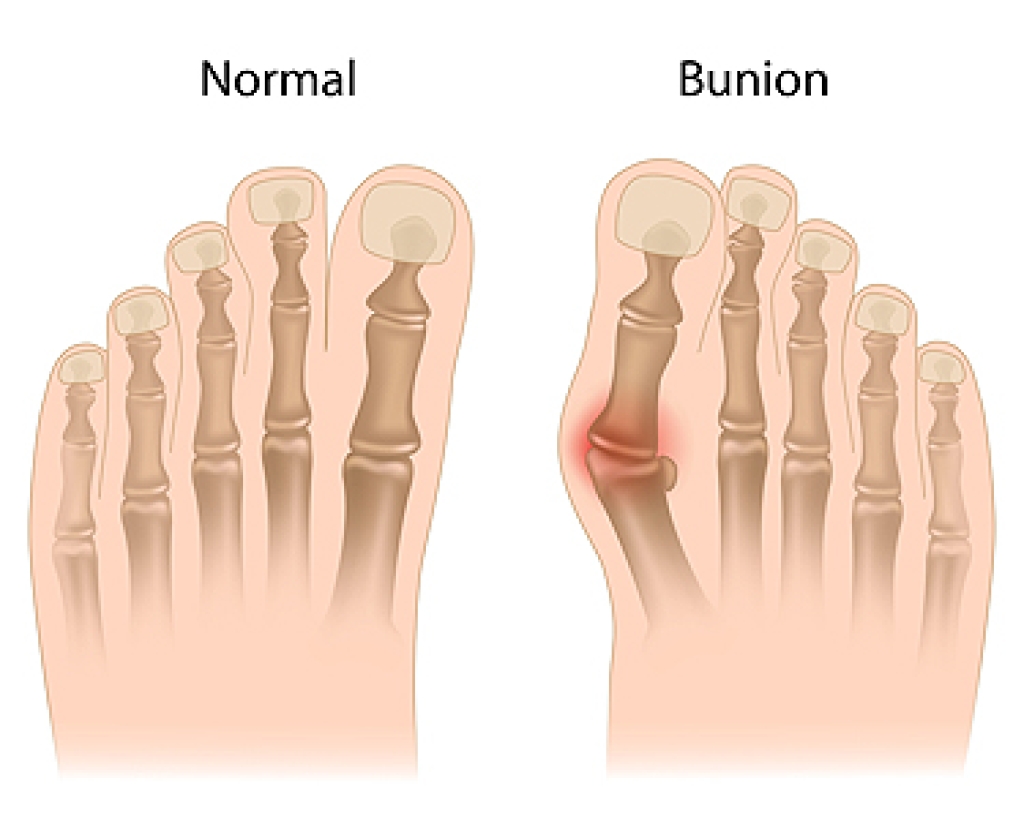
Bunions, medically termed hallux valgus, are a foot deformity characterized by a bony bump at the base of the big toe, while the top of the toe shifts toward the others. Bunions are often accompanied by inflammation and pain. Factors like hereditary predisposition and wearing tight or improper footwear can worsen the deformity. Treatment strategies for bunions typically encompass both non-surgical and surgical approaches. Non-surgical intervention focuses on symptom management and includes wearing well-fitted shoes that provide ample space for the toes. Wearing bunion pads, toe spacers, or orthotic devices for support are among the less invasive treatment options. However, if conservative measures fail to provide relief or if the bunion is severe, surgery may be necessary. Bunion surgery aims to realign the toe joint, alleviate pain, and improve foot function. Surgical techniques include joint trimming and total joint replacement, depending on the severity of the bunion. If you have a bunion that is affecting your daily activities, it's suggested that you schedule an appointment with a podiatrist for a thorough exam and suggested treatment measures.
If you are suffering from bunions, contact one of our podiatrists of Kokomo Foot & Ankle Center. Our doctors can provide the care you need to keep you pain-free and on your feet.
What Is a Bunion?
A bunion is formed of swollen tissue or an enlargement of boney growth, usually located at the base joint of the toe that connects to the foot. The swelling occurs due to the bones in the big toe shifting inward, which impacts the other toes of the foot. This causes the area around the base of the big toe to become inflamed and painful.
Why Do Bunions Form?
Genetics – Susceptibility to bunions are often hereditary
Stress on the feet – Poorly fitted and uncomfortable footwear that places stress on feet, such as heels, can worsen existing bunions
How Are Bunions Diagnosed?
Doctors often perform two tests – blood tests and x-rays – when trying to diagnose bunions, especially in the early stages of development. Blood tests help determine if the foot pain is being caused by something else, such as arthritis, while x-rays provide a clear picture of your bone structure to your doctor.
How Are Bunions Treated?
- Refrain from wearing heels or similar shoes that cause discomfort
- Select wider shoes that can provide more comfort and reduce pain
- Anti-inflammatory and pain management drugs
- Orthotics or foot inserts
- Surgery
If you have any questions, please feel free to contact our office located in Contact Us . We offer the newest diagnostic and treatment technologies for all your foot care needs.
